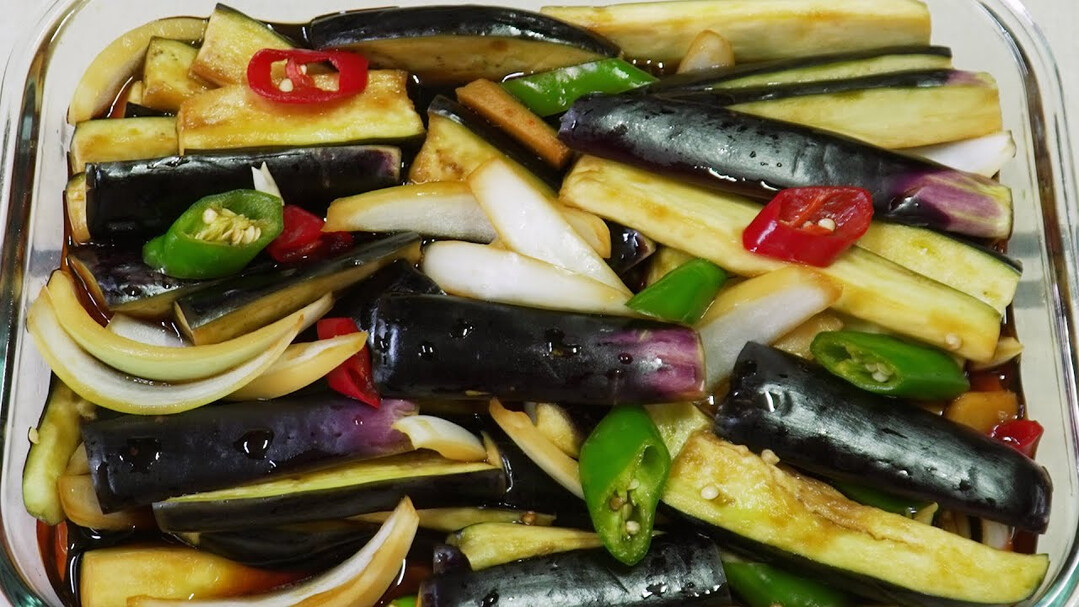
SEOUL — South Korea, once a global leader in vegetable consumption, is seeing its reputation wilt. A new report shows a significant decline in vegetable intake, a trend fueled by a shift toward Western diets and a particular aversion to one nutrient-rich purple vegetable: the eggplant.
According to data from the Korea Disease Control and Prevention Agency, the average daily vegetable consumption per person in South Korea dropped by 20% over a decade, from 282.2g in 2013 to 226.9g in 2022. This decline has cost the country its top spot on the list of per-capita vegetable consumers. In 2015, the OECD ranked Korea first, a position it had held since at least 2000. Now, the country has fallen to 12th place, with an annual consumption of 164kg per person, far behind Croatia’s 330kg and China’s 329kg, according to a 2023 analysis by Insider Monkey based on 2020 FAO data.
A Colorful Diet Deficiency
Beyond the sheer quantity, experts are concerned about the lack of diversity in the Korean diet. The World Health Organization (WHO) and the American Cancer Society have long advocated for the consumption of various "color foods," a concept known as "Five a Day." These colors—red, yellow, green, purple, and white—correspond to different plant-based antioxidants called phytochemicals, each offering unique health benefits.
A 2017 report by Gallup Korea and Amway revealed that purple foods, in particular, are the most lacking in the Korean diet, which is heavily skewed toward white and green vegetables. This deficiency aligns with a 2021 survey by Panel Now, where over 38,000 Koreans overwhelmingly chose the purple eggplant as their least favorite vegetable.
The Texture Problem: A Culinary Divide
So, why the dislike for a vegetable that is popular elsewhere? The primary reasons cited in the Panel Now survey were the eggplant’s subtle purple hue and its unique, mushy texture. This soft, almost watery quality is especially pronounced in the steaming method, a common cooking technique for eggplant in Korean cuisine.
This stands in stark contrast to how the vegetable is prepared in other countries. In Japan, for example, a 2020 survey showed that celery and bitter melon were the most disliked vegetables, not eggplant. Similarly, a YouGov poll of over 1,000 U.S. adults this past July found that beets and kale were the least preferred vegetables.
Western culinary traditions often involve frying or grilling eggplant, which yields a crispy exterior and a tender, moist interior—a texture far removed from the soft, steamed version. For those who find the traditional Korean preparation unappealing, changing the cooking method to grilling or frying might be the key to discovering the vegetable's more palatable side.
A Nutritional Powerhouse
Despite its poor reputation among Koreans, the eggplant is a nutritional powerhouse. It is rich in anthocyanins, the same antioxidants that give it its distinctive purple color. These compounds are known to help lower cholesterol levels, reducing the risk of cardiovascular diseases and strokes. Anthocyanins also benefit eye health by reducing eye strain and discomfort.
Other purple foods that can help fill this dietary gap include beets, red onions, purple sweet potatoes, red cabbage, and fruits like prunes, blueberries, and grapes. The eggplant's abundance of nutrients and versatility in cooking makes it a vegetable worth reconsidering for those looking to add more color—and health—to their plates.
[Copyright (c) Global Economic Times. All Rights Reserved.]






























